Music legends, spicy rice, and sleepless nights in Nigeria’s megacity.

Get ready to bake. It’s hot or humid in Lagos all year round. Not warm. Hot. Only from mid-December to January does the city cool off, when the Harmattan winds bring a plague of dust instead. When you arrive at the airport, have your sunglasses and hat ready. And skip the airport taxis: you’ll have to walk an unreasonable distance in the heat to get to their lot, sweating buckets. Plus, airport taxis are can be a little worse for wear, with unreliable air-conditioning. Get an Uber or Taxify, and ask your driver to crank the AC up to the max.

Pay tribute to a local legend. First-time visitors to Lagos must make a pilgrimage to the New Afrika Shrine, a monument to the city’s best-known musical ambassador: Afrobeat pioneer, activist, and all-around legend Fela Kuti. In the 70s and 80s, Kuti taunted Nigeria’s military government with his hugely popular music. Stung by some pointed criticism, in 1977 the army general sent 1,000 soldiers to raze Kuti’s compound and self-declared republic, which housed his family, band members, recording studio, and a nightclub. In 2000, Kuta’s son, Femi, built the New Afrika Shrine in the spirit of his father’s original base, not far from the old premises in Ikeja. Now, it’s a shrine to Kuti’s life and an open-air club venue with a lively program of music, gatherings, and good times. Come for the education, the atmosphere, the snacks, the drinks made from local herbs—and really fat blunts.
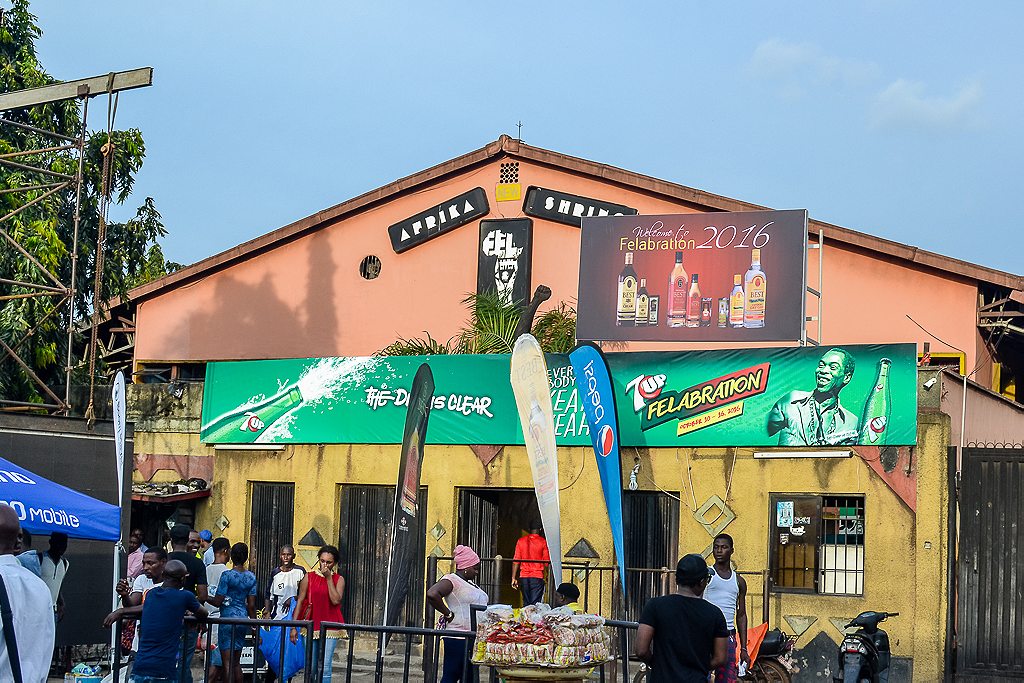
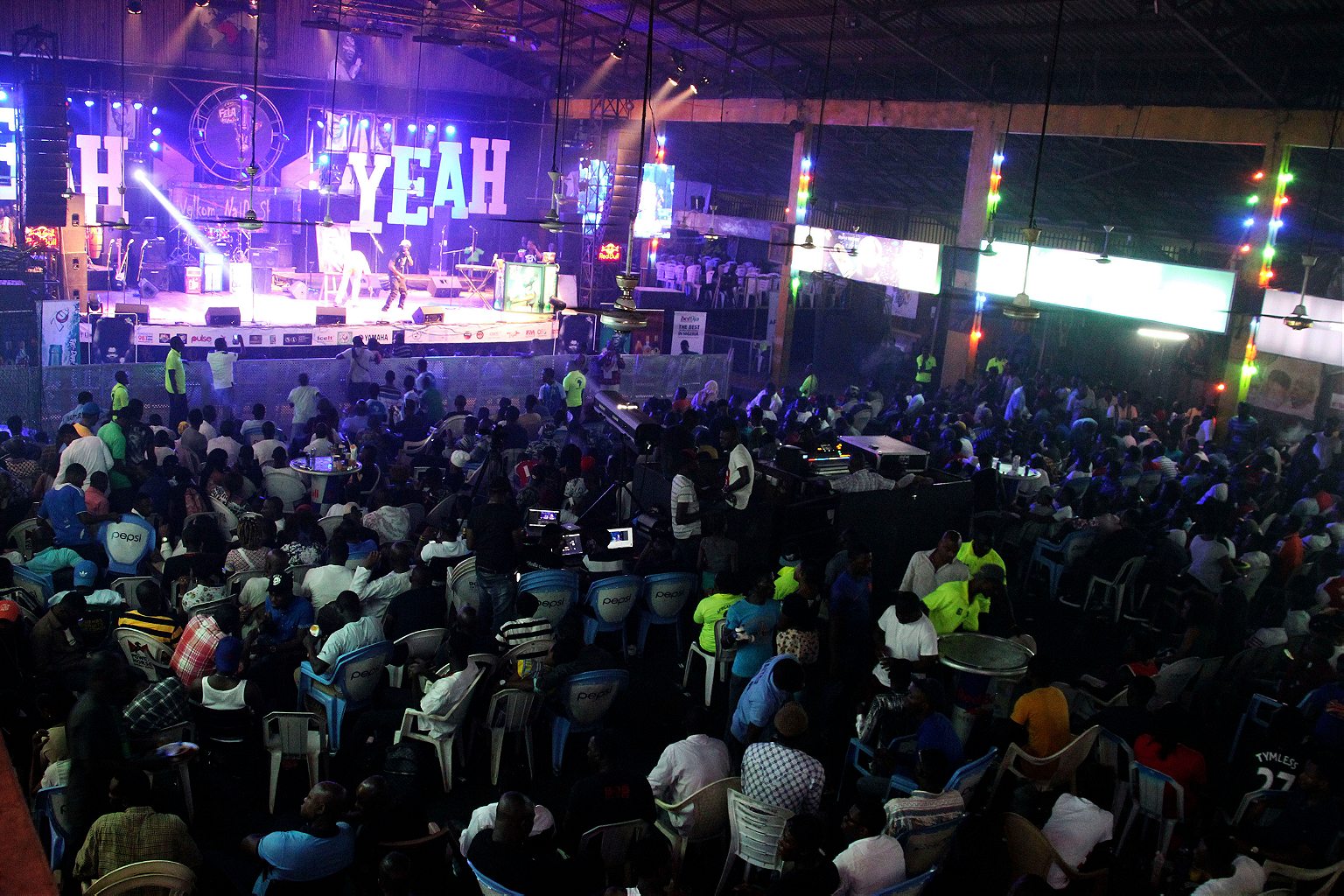

Get your bearings. Lagos is a city of two halves, linked by three large bridges. The Island, along the Gulf of Guinea coast, is where you’ll find Forbes-listed billionaires, major corporations, overpriced stores, and the historic core. The landlocked Mainland is less wealthy and more densely populated, with seas of tin-roof buildings. Each side has a distinct feel. Islanders have better restaurant options and less congestion, but lack the sense of community on which Mainlanders pride themselves. Mainlanders like to think they have more soul. (This is, of course, sort of a generalization, but you get the idea.)

Gorge on rice. As a born-and-bred Lagosian, I’ve eaten a lot of rice in my time: it’s our unofficial national dish. Recently, inflation has sent the price of rice skyrocketing, but this hasn’t made a dent in demand. We eat rice every day, and you should too, in its many forms: white, basmati, ofada (rice in ground pepper stew) and of course, the West African staple and ancestor of jambalaya, jollof—rice spiked with tomato, spices, and Scotch bonnet peppers. My go-to spot for jollof is Ghana High—a typical buka, or hole-in-the-wall street food joint, near the Ghana High Commission. Get it with asun (diced goat meat seasoned with onions and hot peppers) or chicken wings.
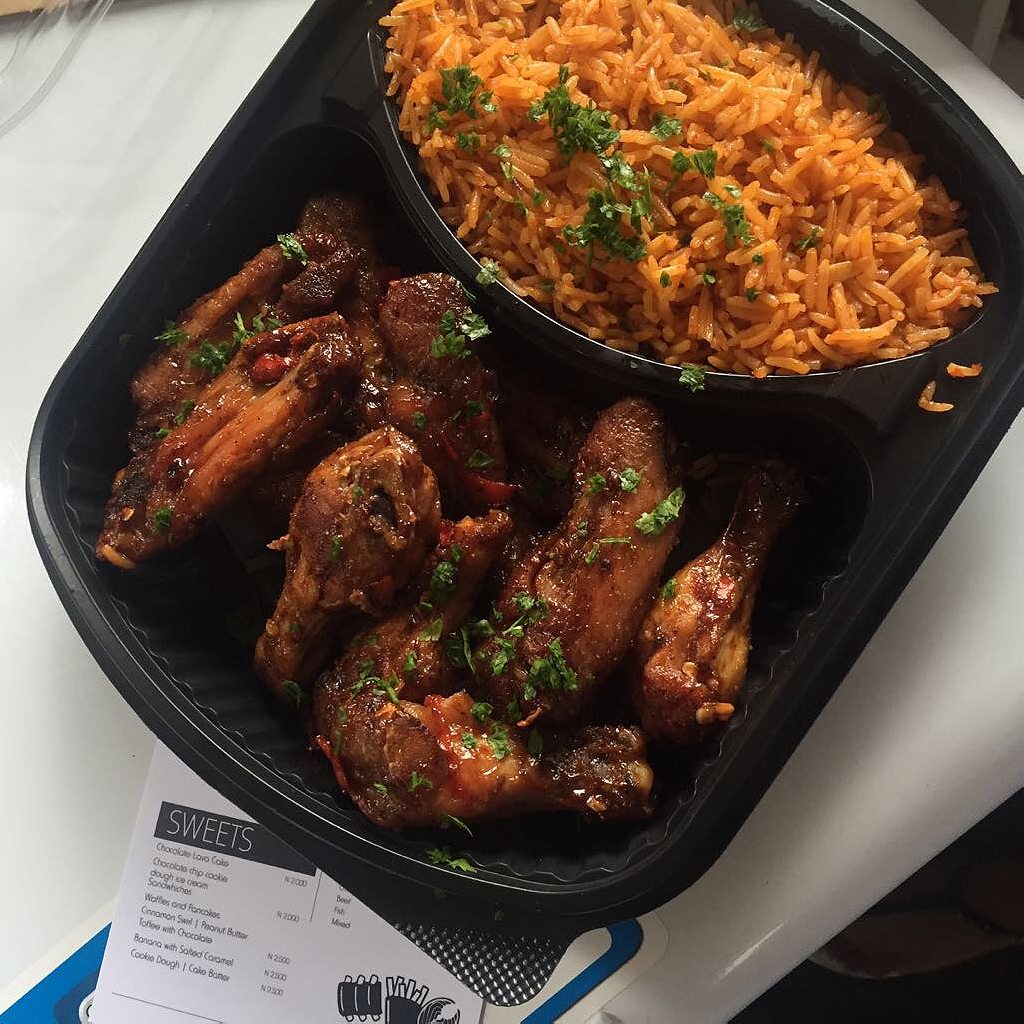

Go cashless… The Central Bank of Nigeria has recently (better late than never!) developed a taste for tracking money, actively campaigning for people to use bankcards instead of cash. There’s even talk of making supermarkets card-only, a truly novel concept here. You’re better off carrying less cash anyway, because the conversion from most international currencies would leave you with a brick-thick wad of Nigerian naira notes. Eating out, paying hotel bills, and going to clubs, you’ll be fine with international cards.

…but not entirely. That said, you will need some cash. There’s a toll when you leave the airport. At the Filmhouse Cinemas in Surulere on the Mainland, moviegoers are charged a fee to use the toilet. In malls across the city, you’re charged by the hour to park your car. On random streets, a stranger will ‘assist’ you with parking in exchange for a tip. Plus, you will run into ‘checkpoints’ manned by police, vehicle inspection officers, and other uniform-clad types who will make as if to search your car and ask questions about your intentions. They’re don’t want answers; they want your spare change.
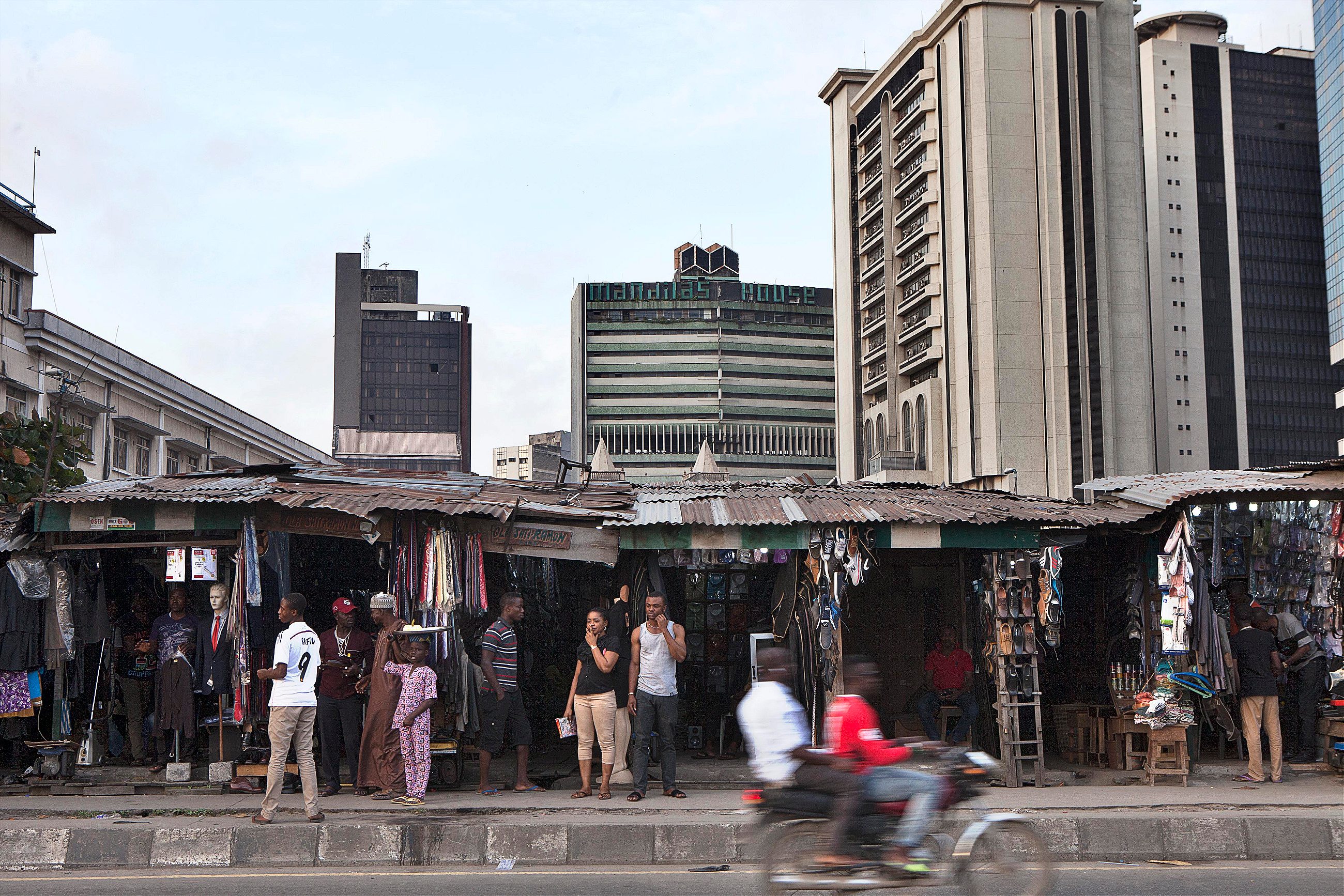

Embrace the heat. Nigerian food is not for the faint of heart, or stomach. We like it hot and spicy, packed with the herbs and spices that the country’s hundreds of ethnic groups have brought to the table. A favorite (and go-to comfort food) is pepper soup, a spicy broth made with scented leaves of uziza, diced chunks of goat meat or chicken, or a whole catfish. Try it anywhere; it’s hard to get wrong. For more spice-rich fare, try White House, Sabo (for their jollof) and Olaiya Canteen for amala—balls of ground cassava or yam flour—and ewedu—ground vegetables. (At Olaiya, ask for soup with your amala; this is where the heat comes from.) These spots are no-frills places where you dine with locals, sharing spicy food in rooms with poor ventilation. For a more formal environment, try Terra Kulture or Yellow Chilli. (Yellow Chilli’s seafood okro soup might just change your life.)

Respect the owambe. It’s best not to make any concrete plans with Lagosians on a Saturday. They’ll probably be attending a wedding, concert, anniversary, birthday soiree, or a let’s get-together-and-drink-for-no-reason party of varying size and lavishness: these are all part of the owambe phenomenon. Lagosians love any excuse to drink and be merry, and Saturdays in particular are fair game. The owambe was originally a Yoruba tradition of celebrating any and all special occasions to excess and flaunting what you’ve got in the process, but Nigeria’s other communities have embraced the party spirit, too.

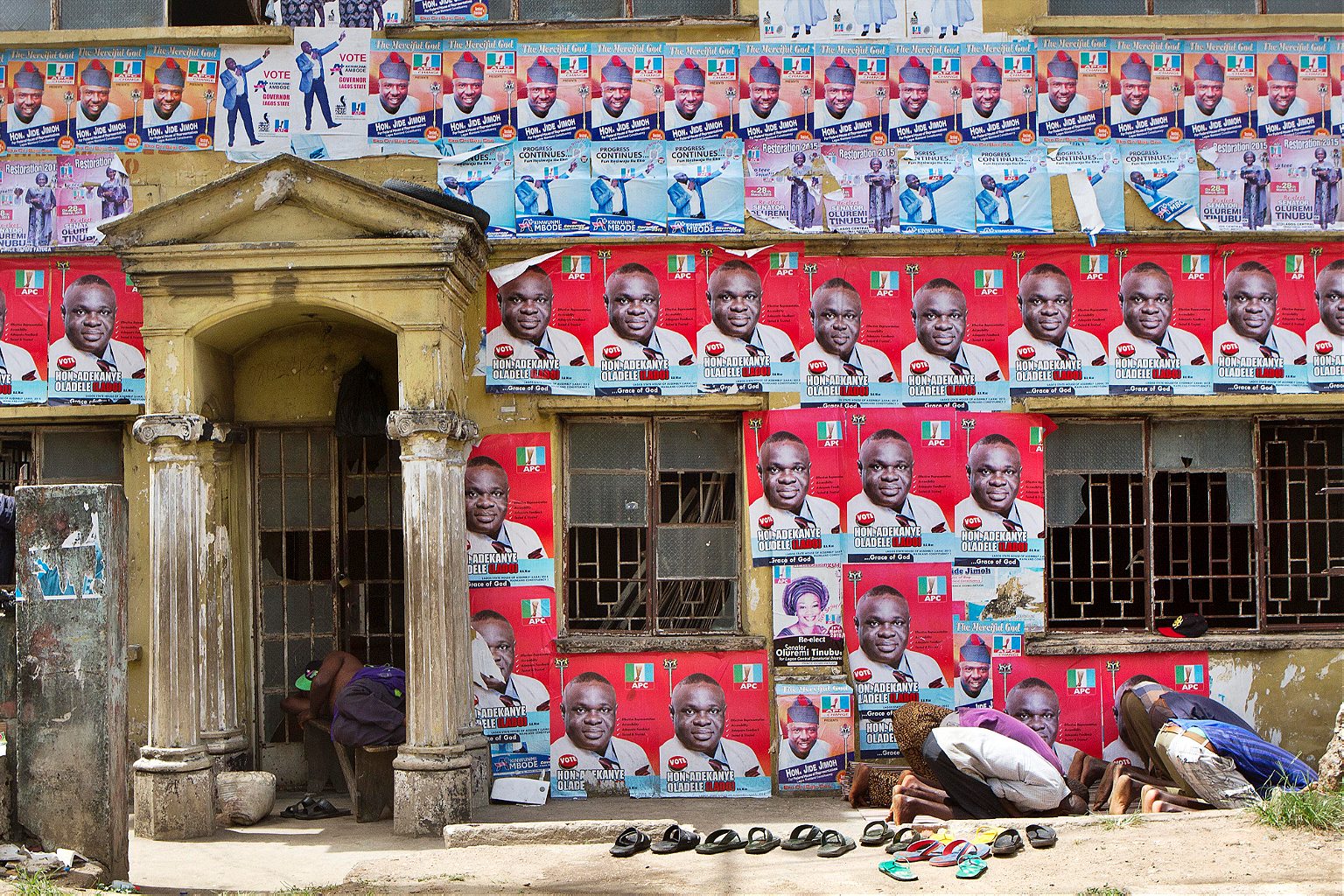
Keep the faith. Lagosians, and Nigerians in general, are a religious bunch. The country has roughly equal numbers of Muslims and Christians, the latter mostly of various Protestant denominations. (Pentecostal megachurches are, well, huge here—and visitors are welcome!) In Lagos, you’ll encounter megaphones blaring salvation messages, evangelists urgently pressing flyers into your hands and asking if you’ve been saved, and impromptu sermons at bus stops. This fervent din recently inspired the Lagos state government to pass a noise pollution law—which churches, mosques, and preachers duly ignore. (Don’t seek accommodation near a house of worship.) Nigeria’s biggest church by membership is the Redeemed Christian Church of God, a Pentecostal megachurch with a fittingly massive complex just north of Lagos in Ogun state, where adherents gather in a covered pavilion the size of 87 football fields. Recently, the exodus of church members leaving Lagos en masse to attend the church’s special Friday crusade (service) caused a six-hour traffic jam. On that note…

You will not beat the traffic. Lagos is Africa’s largest city, and it’s growing rapidly. Epic car logjams (“go-slows”) are an inevitable part of life. Although Lagos state has a capable traffic management agency, sometimes the beast just can’t be tamed—particularly from 6-9 a.m. and 4-10 p.m. You just have to plan ahead.
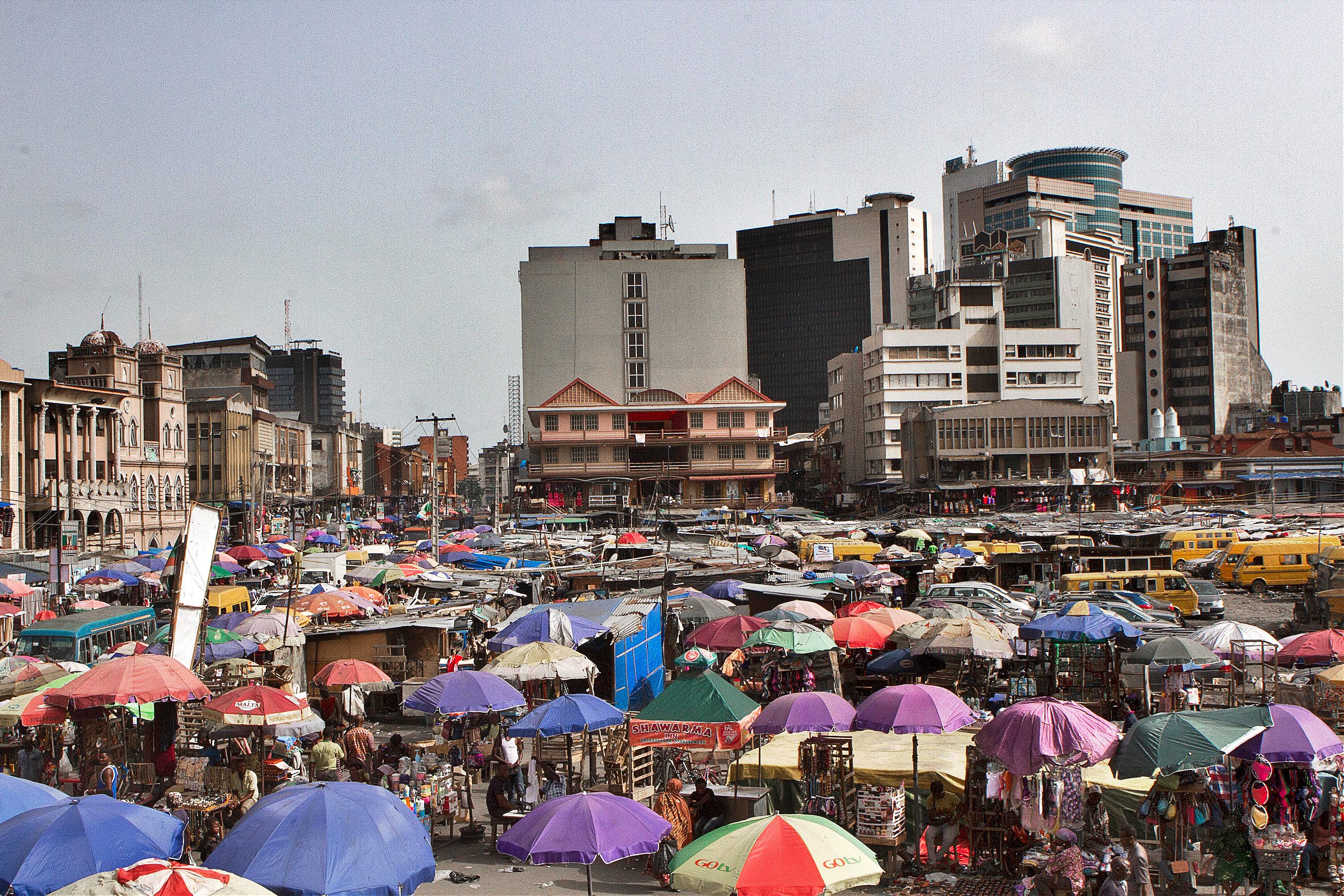

Don’t walk. In Lagos, sidewalks aren’t popular. Neither is urban planning of any kind. Factories encroach on residential areas, houses are built over drainages outlets, covering and blocking them. Lanes are so poorly marked that cars and pedestrians share them. To ride a bike is to flirt with mortal danger. Stick with four wheels (or more.)

Ride private. The most reliable, clean, and safe way to get around is by Uber or by taxi—but the latter aren’t cheap. Many visitors get a pre-arranged driver. Other options are the danfo: the ubiquitous black-and-yellow Volkswagen buses that cover nearly the entire city. Typically, they seat 16–22 people—or however many the driver wants to pack in. (If you’re lucky, there will be seat cushions, but sometimes they’re just wood slabs with exposed nails, and tearing your clothes is a real possibility.) There is also the local version of the tuk-tuk, the keke marwa—the rickshaws named after Colonel Buba Marwa, a former state governor who introduced them to Lagos roads. But you should know that they are probably the most reviled vehicles on Lagos roads. Other drivers hate them because they drive too slowly and often hit other cars as they slip between traffic.

Forget Airbnb. There aren’t many cheap hostel options or Airbnb apartments. The few that do exist are likely to lack key facilities such as running water or 24-hour power. For longer stays, get a short-lease apartment, which you can book online. For short trips, hotels are best. (Remember not to book anything near a megachurch.)

Visit Brazil. Lagos Island—in the northern chunk of the Island—has some well-preserved pockets, although these are under constant threat of demolition. Its distinctive 19th-century buildings were constructed by Brazilian master-builders—former slaves who worked as carpenters and artisans in Brazil before returning to Nigeria—and Lagos’ Brazilian Quarter resembles the old towns in Rio de Janeiro or Salvador de Bahia. Lagos’s ‘Brazilian’ community and customs held firm as the country became increasingly Anglophone during its decades as British colony in the 20th century, but now long-time inhabitants are moving out and many of its historic buildings are being thoughtlessly renovated. Get a local architecture buff to show you around.
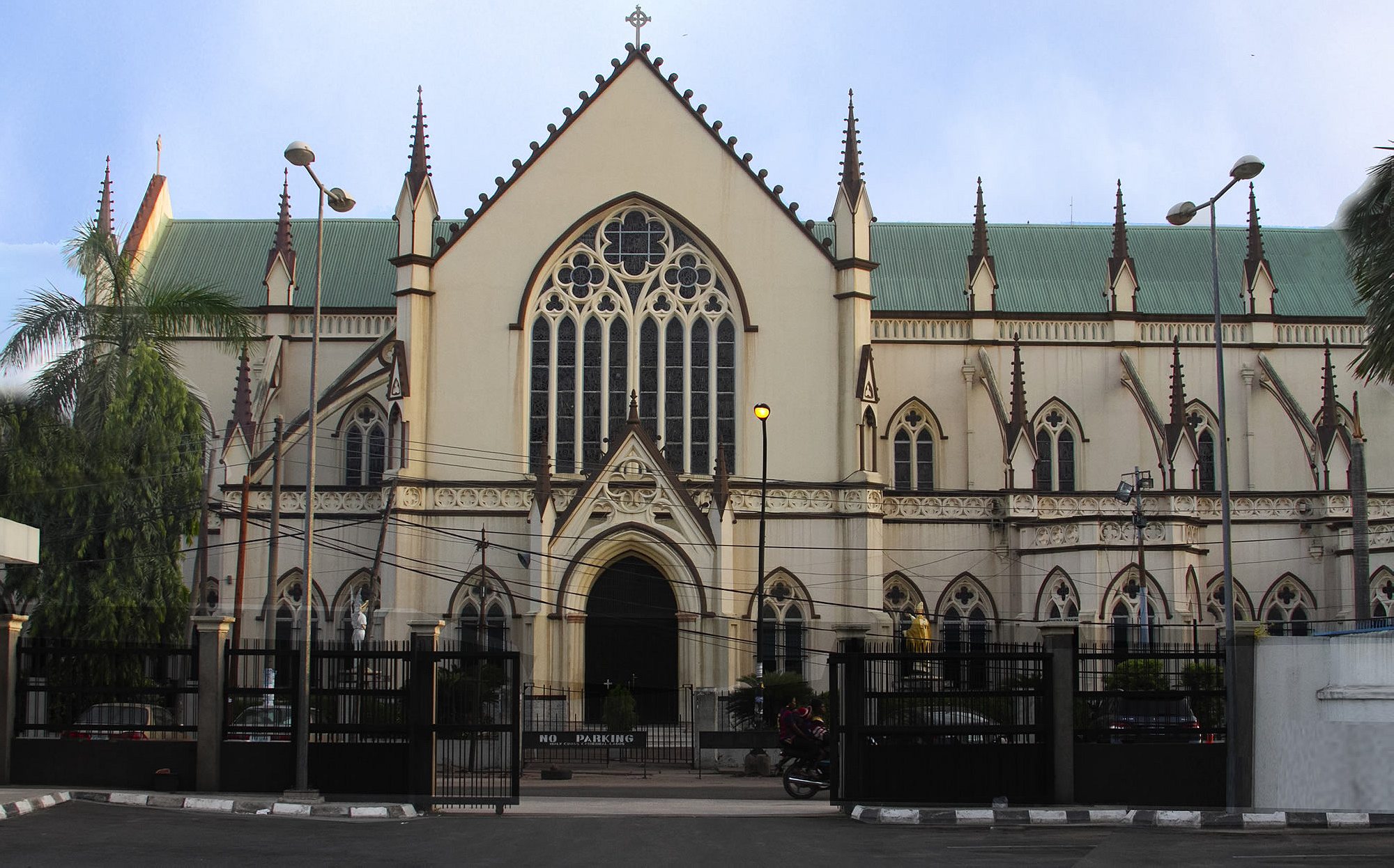

Have a meaty sundowner. When night falls, men with skewers set up shop along random streets, grilling meat—suya—in the open air. The grilling starts around 5 p.m, and by 7 p.m., the meat—usually beef—is slightly charred, deliciously pink, and ready to eat. It’s served in old newspapers with raw onions and fresh ground pepper. Rumor has it the Glover Court Suya in Ikoyi has the best suya in the city, but it’s a tough call. The ones at Makinde Road in Ikeja are also pretty good.

Have at least one sleepless night. Forget sleepless New York: Lagos parties hard, and you haven’t experienced the city unless you’ve spent a night or three wide awake. Weekends start on Thursdays at around 6 p.m. with beers, chicken wings, and smokes at a live music venue or neighborhood bar. Maybe at the New Afrika Shrine, or Freedom Park, a former colonial prison-turned-concert venue. At 8 p.m., switch things up at Food Shack, a rustic street-food restaurant and bar with half-price drinks on Fridays. (They also serve the best fried yam and chicken wings in the city.) At 10 p.m., hit 355, a bar with a celebrated DJ. After midnight, end up at SIP (for pricey drinks), Velvet (an upscale club), or Escape, the biggest purpose-built club in the city, and stay until sunrise. Stay safe: keep your phone charged (bring a power bank!) and your Uber/Taxify app handy.
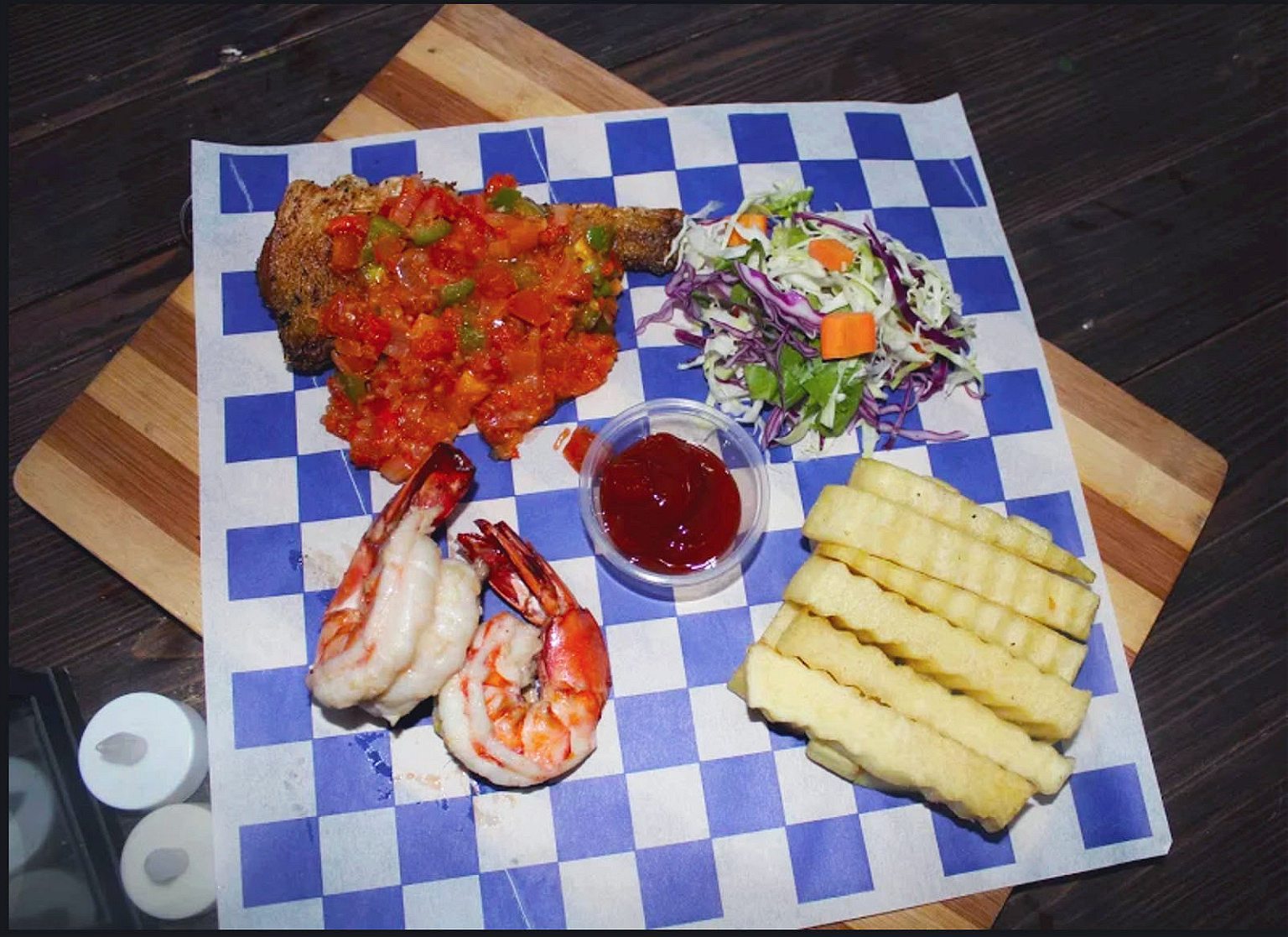

Make it an Orijin. Lagos doesn’t have many truly local tipples. Like other cosmopolitan cities, our ‘local’ drinks tend to be billboard-advertised, brand ambassador-promoted products. The most popular one is a bittersweet beer-cider hybrid (6 percent ABV) called Orijin, made with local herbs and fruit and marketed as the everyman’s drink. If you’re a visitor, ordering one will be a conversation starter and a ticket to some street cred. Protip: Ask for it ice cold or not at all.

Go surfing—or not. A small surfing community has sprung up at Tarkwa Bay, an artificial beach near Lagos Harbor. (It’s only accessible by boat.) It was a leisure spot for locals for years before tourists turned it into a surfing destination. (Lagosians typically don’t surf.) The waves aren’t that high, but it’s definitely worth a splash. Tarkwa Bay also has some picturesque abandoned ships with Instagram-worthy views of the city providing a dramatic backdrop. Explore the shipwrecks with a local guide, and recreate that Rose-and-Jack Titanic moment.